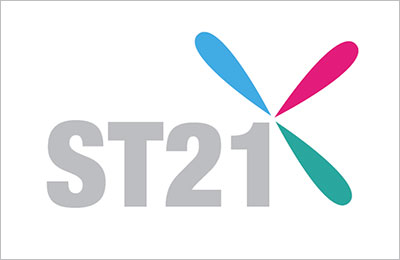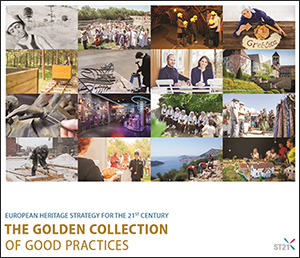Location of the initiative:

Relation to Strategy 21 Recommendations:
Brief description of the initiative:
The Fédération des Sites Clunisiens (Federation of Cluniac Sites) was founded on 18 June 1994 in Souvigny (Allier-France) by 24 municipalities with a view to promoting their shared Cluniac heritage.
The European heritage network handed down by the monks of Cluny since the Middle Ages is dense and complex, and little known today. The aim of the Federation is to give a new cultural meaning to this shared heritage. At present almost 200 sites all over Europe are working together on local, regional and international projects under the aegis of the European Federation of Cluniac Sites.
In 2005 the Council of Europe designated the network of Cluniac sites a “Grand Cultural Route” for its pan-European dimension and the major role Cluny played in forging the European identity. The Federation is proud to live up to that distinction.
The Federation identifies Cluniac sites and helps them work together as a network on scientific and historical projects, and also efforts to enhance the heritage, with the help of new technologies. Educational activities are also organised, as well as cultural exchanges and tourism development projects. The aim is to make the citizens of Europe and elsewhere appreciate our shared history and heritage.
Certain Cluniac sites are listed world heritage sites, but these are just the visible tip of a veritable Cluniac continent that remains to be discovered. The Federation’s ambition is to give them a genuine cultural and touristic identity, amongst other things by applying a special charter giving the Cluniac network an image as a guarantee of quality. Promoting Cluniac sites takes the form of a number of complementary activities in the fields of research, tourism, culture, teaching, etc. The audience is varied: site owners and managers, tourists, young people, elected officials, representatives of local or European institutions, among others.
The Federation makes this history accessible to everyone: elected officials in charge of this often urban heritage; local residents living in or near these sites; tourists, for whom there is so much to visit and discover, etc. Cluny is all at once local and regional history and a veritable phenomenon of European civilisation.
Various tools have been developed:
Cluny Kids, to interest the younger generation in the heritage: Cluny Kids is a European scheme aimed at providing the sites with shared educational tools to familiarise children all over Europe with their Cluniac heritage, improve their understanding of monastic history in Europe and European history, and to forge cultural and linguistic ties between children living in Cluniac sites.
Objectives of the initiative:
- To form a network of Cluniac sites, pool skills and launch transnational initiatives (8 countries are involved: France, Germany, Italy, Poland, Portugal, Spain, Switzerland, United Kingdom)
- To familiarise the public in general (elected officials, local residents, tourists, representatives of local or European institutions) with the history and splendour of this heritage in order better to preserve and promote it
- To familiarise children with the Cluniac heritage through Cluny Kids – heritage for children, to invite them to discover and understand Europe’s Cluniac sites
Online resources:
- http://www.sitesclunisiens.org
- In summer 2018 over 1,000 Cluniac sites are to be found on Clunypedia http://www.sitesclunisiens.org/category-12-0-les-objectifs
- https://www.coe.int/fr/web/cultural-routes/the-cluniac-sites-in-europe
- www.patrimoineeurope2018.fr
Contact:
Fédération Européenne des Sites Clunisiens
Tour des Fromages
71250 Cluny, France
Tel. + 33 (0)3 85 59 31 82





